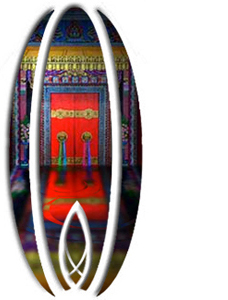Paganism
- At June 10, 2009
- By Betty
- In Mysticism, Religion
 0
0

Paganism (from Latin paganus, meaning “a country dweller” or “civilian”) is a term which, from a western perspective, has come to connote a broad set of spiritual or religious beliefs and practices of natural or polytheistic religions. The term can be defined broadly, to encompass many or most of the faith traditions outside the Abrahamic monotheistic group of Judaism, Christianity, and Islam. This group may include some of the Dharmic religions, which incorporate seemingly pagan characteristics like nature-veneration, idol-worship, polytheism and reverence of female deities, and are thus diametrically opposite to the Abrahamic faiths. Ethnologists avoid the term “paganism”, with its uncertain and varied meanings, in referring to traditional or historic faiths, preferring more precise categories such as shamanism, polytheism, or animism. The term is also used to describe earth-based Native American religions and mythologies, though few Native Americans call themselves or their cultures “pagan”. Historically, the term “pagan” has usually had pejorative connotations among westerners, comparable to heathen, infidel, and mushrik and kafir in Islam. In modern times, though, the words “pagan” or “paganism” have become widely and openly used by some practitioners of certain spiritual paths outside the Abrahamic and Dharmic religious mainstream to describe their beliefs, practices, and organized movements.
The term pagan is from Latin paganus, an adjective originally meaning “rural”, “rustic” or “of the country.” As a noun, paganus was used to mean “country dweller, villager.” In colloquial use, it could mean much the same as calling someone today a ‘bumpkin’ or a ‘hillbilly’. Some believe Paganus was almost exclusively a derogatory term. (It is from this derivation of “villager” which we have the word “villain”, which the expanding Christians called the Pagans of Northern Europe/Scandinavia).
The semantic development of post-classical Latin paganus in the sense “non-Christian, heathen” is unclear. The dating of this sense is controversial, but the 4th century seems most plausible. An earlier example has been suggested in Tertullian De Corona Militis xi, “Apud hunc [sc. Christum] tam miles est paganus fidelis quam paganus est miles infidelis,” but here the word paganus may be interpreted in the sense “civilian” rather than “heathen”.
In another sense, as used by modern practitioners, Paganism is a polytheistic, panentheistic, or pantheistic religious practice, often nature-based. Most Pagans consider themselves to be religious, however some others use the term for a form of Atheism, Agnosticism, or philosophy. Neopaganism includes reconstructed religions such as Hellenic polytheism, Celtic Reconstructionist Paganism, and the many Germanic revivals such as satr, Heathenry, Norse paganism and Theodism. Due to the fact that Reconstructionist religions are polytheistic revivals and elaborations based on surviving cultural practices, many Reconstructionists prefer to be called Pagans, not Neopagans. It might best be assessed that they inhabit a grey area between Pagan and Neopagan.
Also categorised as Neopagan are religions such as Forn Sed, Neo-druidism, Longobardic Odinism, Lithuanian Romuva, and Slavic Rodoverie that also claim to revive an ancient religion rather than reconstruct it, though in general the difference is not absolutely fixed.
Modern eclectic traditions such as Discordianism, and Wicca and its many offshoots are Neopagan, although Wiccans and Wiccan-influenced Neopagans may also refer to themselves simply as “Pagan”.
Many of the “revivals”, Wicca and Neo-druidism in particular, have their roots in 19th century Romanticism and retain noticeable elements of occultism or theosophy that were current then, setting them apart from historical rural (paganus) folk religion.
Still, some practitioners even of syncretized and eclectic traditions tend to object to the term “Neopaganism” for their religion as they consider what they are doing not to be a new thing. It must be said, also, that since the 1990s, the number of reconstructionist movements that reject romantic or occult influences has increased, even if those Neopagans who make a conscious effort to separate pre-Christian from romanticism influences are still a minority.
For purposes of clarity this article will focus on the ancient religions, while Neopaganism is discussed in its own article.
Many current Pagans in industrial societies base their beliefs and practices on a connection to Nature, and a divinity within all living things, but this may not hold true for all forms of Paganism, past or present. Some believe that there are many deities, while some believe that the combined subconscious spirit of all living things forms the universal deity. Paganism pre-dates modern monotheism, although its origins are lost in prehistory. Ancient Greek Paganism, which tended in many cases to be a deification of the local deity, as Athena in Athens, saw each local emanation as an aspect of an Olympian deity during the Classical period and then after Alexander to syncretize the deity with the political process, with “state divinities” increasingly assigned to various localities, as Roma personified Rome. Many ancient regimes would claim to be the representative on earth of these gods, and would depend on more or less elaborate bureaucracies of state-supported priests and scribes to lend public support to their claims.
In one well-established sense, Paganism is the belief in any non-monotheistic religion, which would mean that the Pythagoreans of ancient Greece would not be considered Pagan in that sense, since they were monotheist, but not in the Abrahamic tradition. In an extreme sense, and like the pejorative sense below, any belief, ritual or pastime not sanctioned by a religion accepted as orthodox by those doing the describing, such as Burning Man, Halloween, or even Christmas, can be described as “pagan” by the person or people who object to them and the individuals who choose to claim this title.

